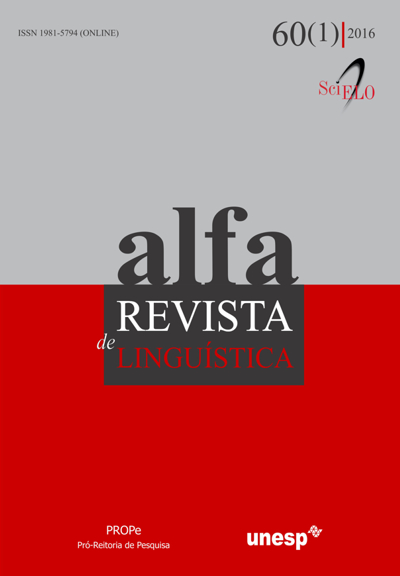A invenção colonial das línguas da América
DOI:
https://doi.org/10.1590/1981-5794-1604-1Palavras-chave:
Línguas indígenas, Português, Espanhol, Colonização, América, Missões cristãs,Resumo
Trata-se de uma proposta que visa discorrer criticamente sobre o processo colonial de discursivização das línguas na América. Considera-se que tal discursivização integrou o dispositivo colonial ibérico, centrado na Espanha e em Portugal, a partir do século XVI. O texto apresenta e discute a maneira como as línguas e os povos foram discursivizados a partir de uma matriz de poder centrada na lógica da modernidade/colonialidade. São tomados como exemplos dessa discursivização a produção de gramáticas, dicionários, listas de palavras, catecismos, além de uma profusão de traduções de gêneros europeus religiosos e administrativos para o contexto não-europeu. Defende-se que a discursivização colonial implicou o enquadramento dos povos e línguas em uma chave de interpretação eurocêntrica, gerando efeitos ainda vivos contemporaneamente. O artigo apoia-se no referencial teórico da Linguística colonial e da Crítica pós-colonial latino americana, ambas focadas em um olhar histórico e discursivo sobre as práticas coloniais. Considera-se, por fim, que a experiência colonial é complexa, o que significa que o encontro colonial produziu também a emergência de resistências e hibridizações culturais.
Downloads
Downloads
Publicado
Como Citar
Edição
Seção
Licença
Os manuscritos aceitos e publicados são de propriedade da Alfa: Revista de Linguística. É vedada a submissão integral ou parcial do manuscrito a qualquer outro periódico. A responsabilidade do conteúdo dos artigos é exclusiva dos autores. É vedada a tradução para outro idioma sem a autorização escrita do Editor ouvida a Comissão Editorial.

